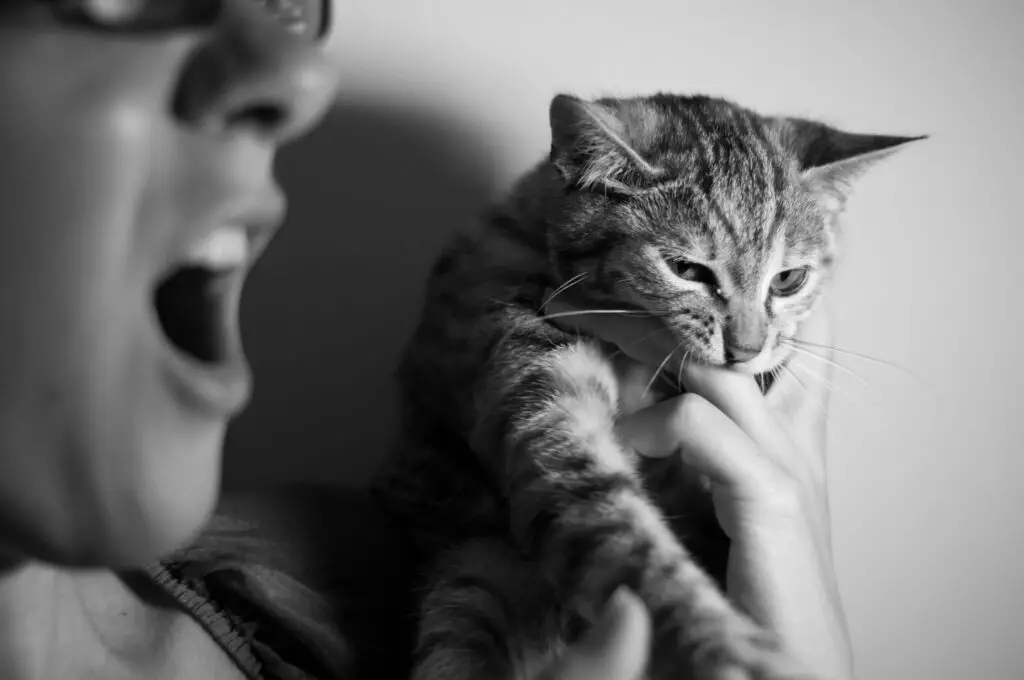What would you do if you offered to pet-sit a particularly mean-spirited cat? The person in this video did not know what they were walking into when they opened the door to catsit for their friend!
In the video, a man opens his friend’s apartment door. He begins to walk in, and almost instantly, his friend’s cat pounces toward him, hissing angrily! In a comedic moment, his friend’s other cat jumps at him, too, clinging to his shirt with its sharp claws.
The man begins screaming and running with the cat clinging to his arm. The clip ends with the camera falling over, likely caused by the chaos of the situation.
Assumption of Risk
According to Attorney Ugo Lord, a common law concept called assumption of risk can apply to such situations. In basic, an assumption of risk is when someone willingly agrees to be in a situation where they understand there is some form of risk.
An assumption of risk can be explicit or implied, depending on the situation. In the case of catsitting, this assumption often occurs when you agree to watch a cat that was described as “mean” or “testy.”
How Can You Prove an Assumption of Risk?

As you can probably guess, proving that there is an assumption of risk can be tricky. In many cases, businesses have explicit signs, warnings, or even waivers that state risks their clients may experience. These constitute a legal form of warning.
For personal cases such as sitting, the assumption of risk likely takes place in a conversation. For instance, the cat owner may explicitly ask if their sitter is comfortable with their cat and its temperament. With professional pet sitting, contracts may even outline the liability for bites, scratches, or other injuries.
Can This Cat Owner Be Held Liable?
Many courts have ruled that professional activities, such as professional pet sitting, fall under the assumption of risk. Thus, if the man in the video were an experienced sitter who willingly agreed, he would be liable. The only way for someone who is a professional not to have liability is if the pet owner willingly withheld information regarding the cat’s temperament.
In this case, the cat sitter was a friend of the owner doing a favor without professional intent. In personal situations such as this, the assumption of risk usually does not apply, meaning that the cat owner would be liable.
Summary
Legal cases involving our fuzzy friends can be quite difficult to think about, especially if they involve a personal or pet injury!
In the video clip, the man catsitting was supposedly a friend doing a favor. According to most court rulings, personal situations like this do not constitute an assumption of risk, meaning that the cat owner is liable for any damages.
If the friend were looking to prosecute, the cat owner would likely have to make up for any emotional or physical damages caused by their furry friend.

